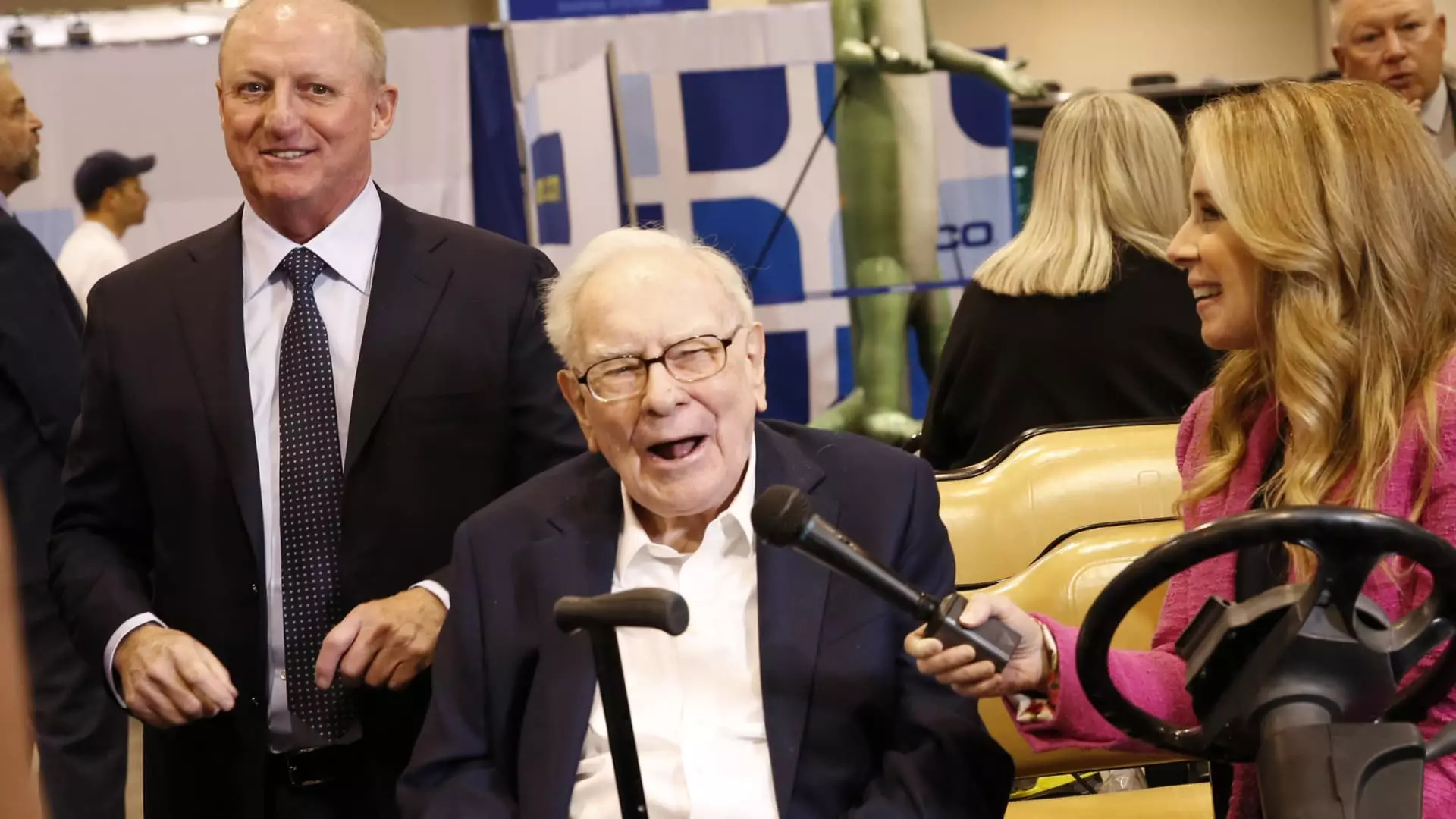Warren Buffett’s impending departure as CEO of Berkshire Hathaway marks the close of an exceptional era in investing. After over sixty years at the helm, Buffett leaves behind a legacy so profound that it reshaped the very fabric of value investing. Berkshire’s performance throughout his tenure is undeniably impressive—an astounding 5,502,284% increase since 1965, vastly outpacing the S&P 500’s respectable yet modest 39,054% rise. These figures evoke a sense of admiration and respect; however, they also paint a picture of the immense shoes that his successor, Greg Abel, will need to fill.
Buffett’s approach to investing was not merely about numbers. It revolved around a firm belief in thorough analysis, patience, and a deep understanding of the businesses he invested in. As he steps down, investors are left to grapple with the question of whether Abel can continue this unique philosophy that has brought about such outsized returns. The footfalls of one of history’s most successful investors are daunting.
The Changing Landscape
The world of investing, much like society itself, is in a constant state of flux. The tech boom, which saw companies like Amazon and Apple rise to dominance, changed the investment landscape. Buffett, often criticized for his hesitance to embrace technology stocks in their early days, maintained a steadfast commitment to value. Yet, in doing so, he thrived while navigating the pitfalls intrinsic in a rapidly changing environment.
Abel’s leadership comes at a time when understanding technology’s role in the marketplace is more critical than ever. The task at hand for him is not merely to replicate Buffett’s magic but to innovate while adhering to value principles. There is caution in this evolution; a misstep could lead to not just a downfall of Berkshire’s long-standing prestige but also diminish its bargaining power with future investors.
Investment Philosophy Under Fire
As Berkshire Hathaway transitions from the Buffett era, skepticism surrounds whether the company can retain its legendary investment philosophy. Buffett championed a long-term approach, often in stark contrast to the instant gratification that the stock market tends to favor today. The investment community is increasingly drawn to short-term gains, and this shift could further put pressure on Berkshire’s strategy under new leadership.
The market infrastructure is rapidly evolving, with algorithm-driven trading and cryptocurrencies reshaping the old normal. For someone accustomed to the traditional value investment framework, the pressure to adapt without losing the company’s identity is immense. The political climate also adds another layer of complexity—shifting regulatory environments can heavily impact investment strategies and operational capabilities.
Market Ramifications of Buffett’s Exit
The ripple effects of Buffett’s departure will undoubtedly extend beyond Berkshire’s walls. The investment community has often looked to him not only for guidance but as a cornerstone of American capitalism, and his exit could incite a wave of uncertainty among both institutional and individual investors. When a figure like Buffett steps down, it is not just the company that struggles; the entire market dynamics can change.
As Berkshire Hathaway propels into a post-Buffett world, speculation rises over how large investors will respond. Will they stick around, waiting for a new kind of leadership under Abel, or will their confidence fade, leading to an exodus of capital? Recent stock performance suggests some volatility, with Berkshire’s shares lagging behind the S&P 500 in certain periods, raising ongoing concerns about the effectiveness of the current leadership transition.
A Call for Resilience
In the aftermath of Buffett’s transition, the mantle of leadership bequeaths not just responsibility but also a call for resilience—resilience to face change, to question established norms, and to remain true to the fundamental principles that guided the company through periods of turbulence. The investment world is not as forgiving as it once was. With market volatility and economic uncertainty on the horizon, one can only hope that Abel channels the same wisdom and foresight his predecessor displayed.
As Buffett departs, we cannot ignore the sentiment of nostalgia that swirls around his legacy, but equally important is acknowledging that the future isn’t preordained. It is a combination of past achievements and future challenges; it’s about how Berkshire Hathaway adapts in a changing world. Time will tell if the strategies employed by Abel can align with Buffett’s vision while carving out a future uniquely their own within the complex tapestry of global markets.

